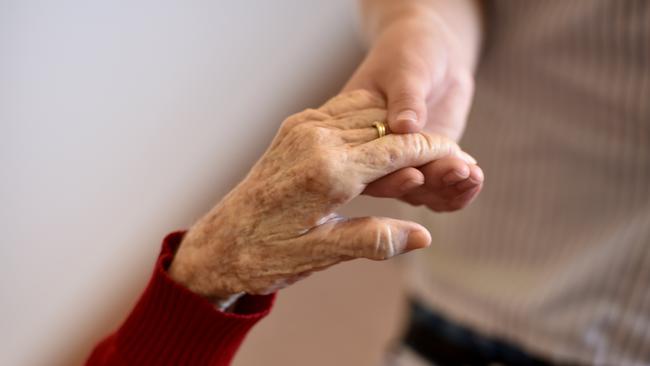No improvement in aged-care nutrition
Mandatory nutrition screening in nursing homes has been left off a new list of aged-care quality indicators, despite the Albanese government saying better food was one of its priorities,

Mandatory nutrition screening in nursing homes has been left off a new list of aged-care quality indicators, despite the Albanese government saying better food was one of its priorities for improving the sector, dietitians warn.
And the government continues to measure unplanned weight loss in nursing homes as a benchmark of dietary improvement when it should be focused instead on the more pressing concern of malnutrition, Dietitians Australia chief executive officer Robert Hunt says.
New guidelines from the Department of Health and Aged Care released this week list a range of new quality indicators that residential aged-care providers will be required to monitor and report on. These include daily activities, incontinence, hospitalisations and quality of life for nursing home residents, but not nutrition.
“It shows the new federal government really isn’t giving food and nutrition in aged-care facilities the priority required, or that it said it would,” Mr Hunt said.
“In his budget reply speech in March, Anthony Albanese specifically listed better food in nursing homes as one of his five priority areas to improve aged care, but nearly three months into his government absolutely nothing has happened to improve the situation.

“Our understanding is that the food is still so bad that around half the residents in aged-care facilities are malnourished,” he said.
Improving nutrition was one of the key recommendations of the aged-care royal commission’s final report in February last year. In its 2021 budget, the Morrison government gave aged-care providers an additional $10 a day per bed Basic Daily Fee Supplement to improve the quality of life of residents, including bolstering nutrition.
But an audit of that program in March revealed one in three of the nation’s 2600 nursing homes continued to spend less than $10 per day for each resident’s food, despite the additional funding.
Next week, the Australian Institute of Health and Welfare will release its latest quarterly data for the June quarter on unplanned weight loss in residential aged care facilities.
The most recent figures for the March quarter showed 11 per cent of the residents surveyed experienced significant unplanned weight loss, the highest proportion so far recorded despite the new funding.
Mr Hunt said he expected little change in the most recent quarter given the lack of progress on improving food standards, and said the measure offered little value anyway.
“Unplanned weight loss can be a function of very old people losing weight as they become more ill and more frail at the end of their life,” he said. “We should be measuring malnutrition, which can be present in people who are of a healthy weight.
Mr Hunt will next month ask health and aged care minister Mark Butler to consider funding mandatory nutrition screening along with dental health.
Mr Hunt said dietitians could provide nursing home kitchens with a comprehensive review of their meal planning and menu, including times they are served, to improve nutritional outcomes for nursing home residents.




To join the conversation, please log in. Don't have an account? Register
Join the conversation, you are commenting as Logout